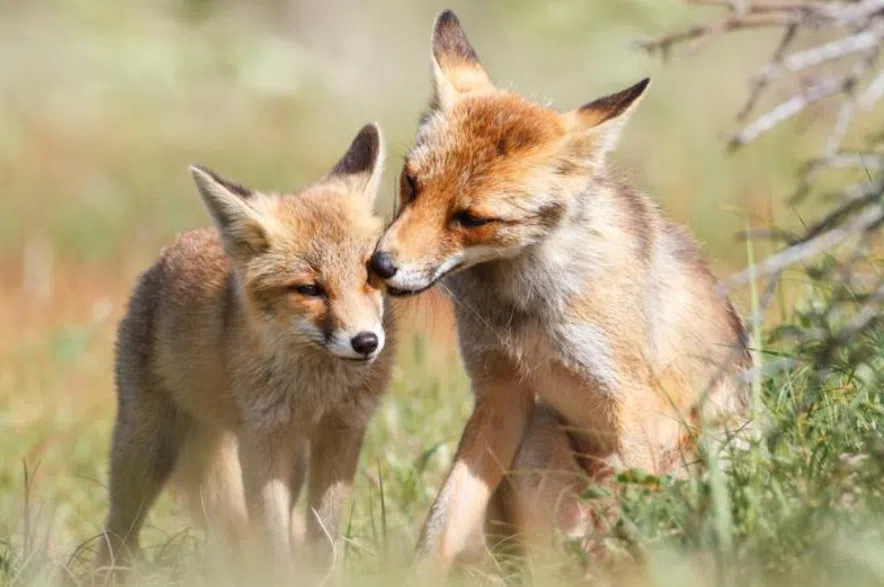Air Ronge Mayor Julie Baschuk is blaming local community members for a family of foxes that have taken up residence in the village.
She took to social media earlier this week, claiming the foxes have remained in Air Ronge because community members are feeding them. She noted by feeding them human food, they can stop hunting, foraging, or scavenging as they would naturally.
“Folks: this has to stop,” she wrote on Facebook.
“Oh, we get it, we are animal lovers, too. We know how exhilarating wildlife encounters can be. Feeling as though they are our little fury friend. But this behaviour is hurting the foxes. These foxes are habituated. And that’s bad.”
Read more
- Leave young animals alone, environment ministry says
- Province urges public to be ‘bear aware’ this spring
Baschuk noted there’s a big difference between quietly observing wild animals and encouraging them to change their natural behaviour. She added the last thing she wants is for someone to accidentally get hurt and recommends working together to keep both wildlife and the community safe.
In an email to larongeNOW, a spokesperson for the Ministry of Environment stated local conservation officers have not responded in this case to concerns about foxes. There also isn’t any evidence if people have indeed been feeding the foxes.
“It’s critical that people don’t feed wildlife,” the email explains.
“Wild animals suffer when they get used to eating human food instead of their natural diet. When wild animals are attracted by food, they may become habituated, losing their fear of people and posing risks to humans, pets, and themselves. Providing artificial food sources to wildlife can cause adults to produce large families or litters, which the natural food supply can’t support.”
Overpopulation can lead to starvation and epidemics of disease, some of which are dangerous to humans. Feeding draws unnaturally large numbers of animals to the area of the food source, which can increase the spread of disease among animals.
“While foxes may look cute and friendly, they are a wild animal,” the email continues.
“They can carry diseases, such as rabies which can be transmitted to pets. They also are predators and may also prey on smaller pets. You can risk injury when you don’t keep a respectful distance from wild animals. Wildlife can also misinterpret your actions and you can get bitten.”
Kits mature quickly and may be seen coming out of the den as early as three to four weeks after birth. The kits are often moved to different dens one or more times during the rearing process, so it is likely the current location will soon be vacant.
If the public has concerns about wildlife issues, they can contact a local conservation officer or Government of Saskatchewan field office. After-hours calls can be made to the Ministry’s toll-free Turn-In-Poacher hotline at 1-800-667-7561, 24 hours per day. To report concerns about nuisance or aggressive wildlife, contact the Ministry of Environment Inquiry Centre at 1-800-567-4224 or by email at centre.inquiry@gov.sk.ca.
derek.cornet@pattisonmedia.com
Read more
- Leave young animals alone, environment ministry says
- Province urges public to be ‘bear aware’ this spring











